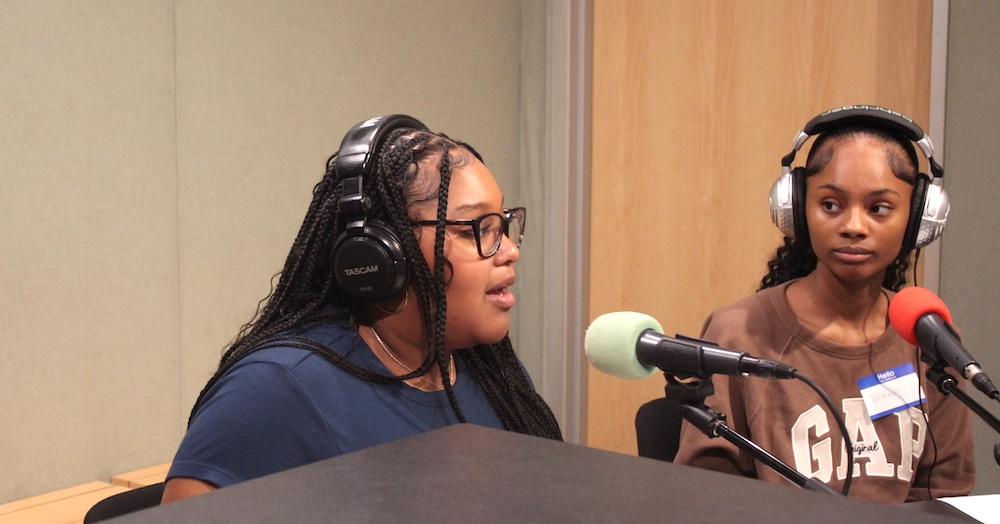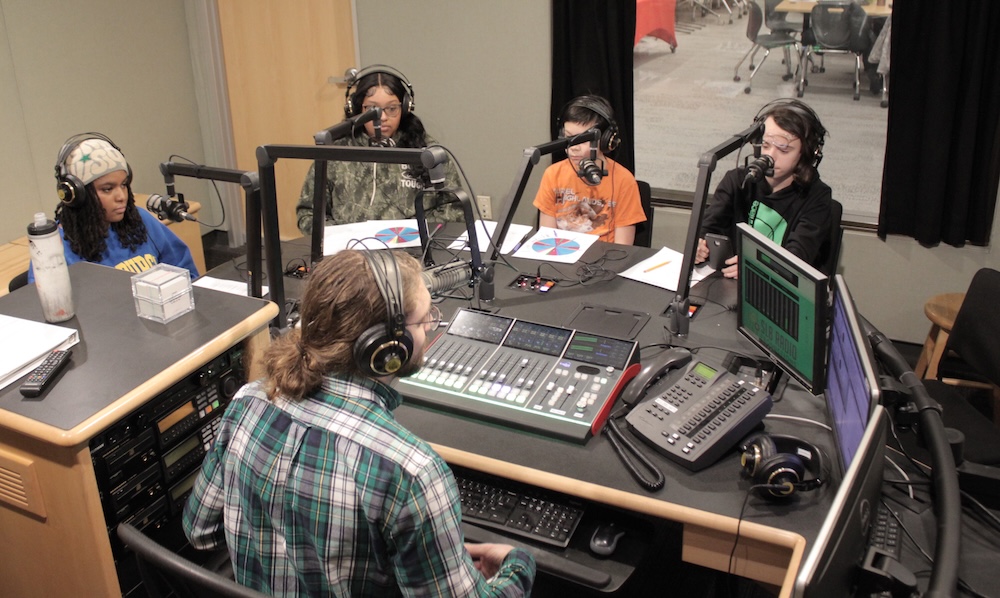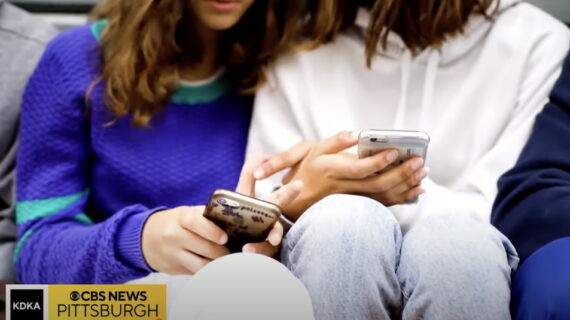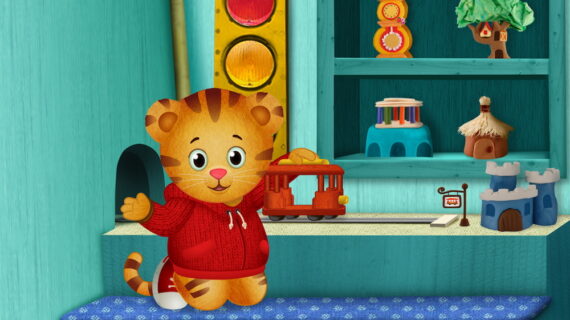
From ‘Streaming Justice’ to daily conversations, these ideas can help your child build empathy and social awareness
Photos from this year’s Streaming Justice event courtesy of SLB Radio.
I‘ve been with SLB Radio Productions for the past five years and it’s a place I’m always glad to be. But more than any other day, I always look forward to Martin Luther King Jr. Day at the studio. Each year, SLB Radio hosts Streaming Justice, a live roundtable discussion on all things social justice and civil rights in honor of Dr. King.
Every hour, for three hours, a unique group of students hosts a broadcast filled with riveting conversation, fitting music, and sometimes live callers. No two conversations are the same, which adds to the charm of the event and draws listeners in for all three hours.
It’s been a couple of months now since this year’s Streaming Justice event, but the experience is still very much on my mind. I wanted to share it with Kidsburgh readers (you can listen right here!) and let you know that it’s something your kids might want to get involved with next year. Streaming Justice provides a unique opportunity for students of all backgrounds to share their thoughts and expand their perspectives.
And while discussions about civil rights and social justice are more frequent during Black History Month, there are also many ways to continue the conversation with your teen year-round. The ideas here can be a good launchpad for making those conversations happen.

FINDING THEIR VOICES
At the studio this year, I spoke with Waylon, a 12-year-old student who learned about historical figures in school but wanted to have a larger conversation about them. After examining a few of Dr. King’s speeches, he posited that a modern day MLK would have to be someone whose goal is to unify our world and encourages everyone to use their voice.
In the second hour, we heard from Sea, a 17-year old student with a passion for film. Vulnerably, they shared their experience growing up without much queer representation in the media, which has inspired them to create art with trans and queer identities in the spotlight. Just as Dr. King stressed the importance of belonging and community, this student highlighted the importance of interconnectedness and compassion in order to address the root of racism and make lasting change.

There were also students like me present — high-schoolers who were there to listen more than they spoke. As I am exposed more and more to these conversations, it is always inspiring to hear the types of change my generation is making. Hearing their stories and their vulnerability makes me more optimistic about our generation of leaders, who will use their voices to change the world.
Regardless of your teen’s age, passions, or prior knowledge, the ongoing conversation of social justice has space for them to learn and grow. Here are a few tips for engaging in these conversations with your child:
- Ask what they already know: Having consistent conversations about what your teen is learning about in relation to social justice and civil rights may make the talks feel less awkward or out-of-the-blue. It can also stop the spread of misinformation early on if they are receiving information from several different sources (school, work, online…) and open up more opportunities for vulnerability.
- Share what you are learning/find interesting: Often, teens are “preached” to by adults who want them to align with a certain perspective, which can make these conversations feel draining. Making the discussion an opportunity for mutual learning will put you on an equal footing from the start and help you both gain perspective. Whether you choose to livestream an event together or share an article, be willing to open up and make space for non-closure.
- Hold space for emotional/difficult topics: Social justice is sensitive, raw and honest. It often comes with difficult conversations and perspective shifts, but that is not a negative. These talks can help all of us develop empathy and greater social awareness. Provide the space that your teen can ask questions and be vulnerable in; even if you do not have all of the answers (and it’s okay if you don’t), a listening ear is often enough.
Whether your teen is already engaged in grassroots activism or has just started their social justice journey, there is always space for them on Streaming Justice. While this event spotlights these conversations each year on MLK Day, finding ways to engage with these topics outside of Black History Month will give your teen the tools to face the world and lead the change.











